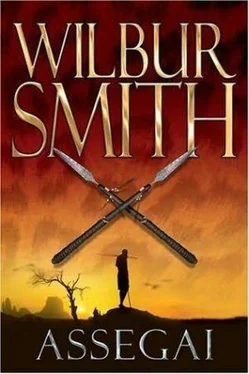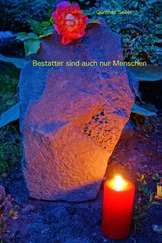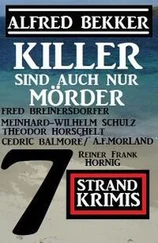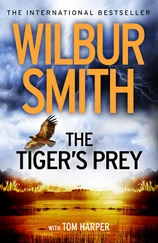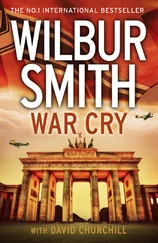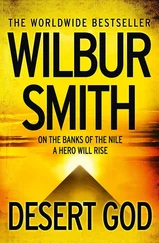‘I know this one. I have seen him often. His teeth are this long . . .’ He made a mark in the dust, then paced out three of his longest strides and made a second mark. ‘He is a great grey chief of his tribe.’
Lusima had used the same description: ‘Follow the great grey men who are not men.’ At the time it had puzzled Leon, but now he realized she been speaking about elephant. He pondered her advice as they went on into the north. He had always been fascinated by the wild chase. From his father’s library he had read all the books written by the great hunters. He had followed the adventures of Baker, Selous, Gordon-Cumming, Cornwallis Harris and the rest. The lure of wild sports was one of the most powerful reasons why he had enlisted in the KAR rather than enter his father’s business. His father termed any activity not aimed specifically at the accumulation of money as ‘slacking’. But Leon had heard that the army brass encouraged their young officers to indulge in such manly pursuits as big-game hunting. Captain Cornwallis Harris had been given a full year’s leave of absence from his regiment in India to travel to South Africa and hunt in the unexplored wilderness. Leon longed to be able to emulate his heroes but so far he had been disappointed.
Since he had joined the KAR he had applied on more than one occasion for a few days’ leave to indulge in his first big-game hunt. Major Snell, his commanding officer, had dismissed his requests out of hand. ‘If you think you have signed up for a glorified hunting safari then you are very much mistaken, Courtney,’ he said. ‘Get back to your duties. I want to hear no more of this nonsense.’ So far his hunting had been restricted to a few small antelope, Grant’s and Thomson’s gazelle – known to all as Tommies – which he had shot to feed his askari while they were on patrol. But his heart stirred when he watched the magnificent animals that flourished all around him. He longed for a chance to go after them.
He wondered if by counselling him to ‘follow the great grey men’, Lusima was suggesting he should take to the life of an ivory hunter. It was an intriguing prospect. He went on more cheerfully behind Loikot. Life seemed good and full of promise. He had comported himself honourably during his first military action. Manyoro was alive. A new career was opening ahead of him. Best of all, Verity O’Hearne was waiting for him in Nairobi. Yes, life was good, very good indeed.
Five days after they had left Lonsonyo Mountain, Loikot turned east and led him up the escarpment of the Great Rift Valley into the rolling forested hills of the uplands. They topped one and looked down into the shallow valley beyond. In the distance something glinted in the late-evening sunlight. Leon shaded his eyes. ‘Yes, M’bogo,’ Loikot told him. ‘There is your iron snake.’
He saw the smoke of the locomotive spurting in regular puffs above the tops of the trees and heard the mournful blast of a steam whistle.
‘I will leave you now. Even you cannot lose your way from here,’ Loikot told him loftily. ‘I must go back to care for the cattle.’
Leon watched him go regretfully. He had enjoyed the boy’s lively company. Then he put it out of his mind and went down the hill.
The locomotive driver leaned out of the side window of his cab and spotted the tall figure beside the tracks far ahead. He saw at once from his ochre-red shuka that he was Masai. It was only as the engine puffed closer that the man swept open his cloak and the driver saw he was a white man in the ragged remnants of a khaki uniform. He reached for the brake lever and the wheels squealed on the steel rails as they drew to a halt in a cloud of steam.
Major Frederick Snell, officer commanding the 3rd Battalion, 1st Regiment, The King’s African Rifles, did not look up from the document he was perusing when Lieutenant Leon Courtney was marched under armed escort into his office in Battalion Headquarters.
Snell was old for his command. He had fought without particular distinction in the Sudan against the Mahdi, and again in South Africa against the wily Boers. He was close to retirement age, and dreading its arrival. On his army pension he would be able to afford only a mean lodging in a town such as Brighton or Bournemouth, which, for the remainder of their days, would have to be home for both him and his wife of forty years. Maggie Snell had spent a lifetime in army quarters in tropical climes, which had yellowed her complexion, soured her disposition and sharpened her tongue.
Snell was a small man. His once bright ginger hair had faded and fallen out until he was left with only a scraggly white fringe around a freckled pate. His mouth was wide but his lips were thin. His eyes were round, pale blue and protuberant, which justified his nickname: ‘Freddie the Frog’.
He replaced his pipe between his lips and sucked at it, making it gurgle noisily. He was frowning as he finished reading the handwritten sheaf of paper. He still did not look up, but removed the pipe from his mouth and flicked it against the wall of his office, leaving a splatter of yellow nicotine drops across the whitewash. He put it back in his mouth and returned to the first page of the document. He read it again with deliberation, then laid it neatly in front of him and at last raised his head.
‘Prisoner! Attention!’ barked Sergeant Major M’fefe, who commanded the guard detail. Leon stamped his battered boots on the cement floor and stood erect.
Snell eyed him with distaste. Leon had been arrested three days earlier when he had presented himself at the main gates of Battalion Headquarters. Since then he had been held on Major Snell’s orders in detention barracks. He had not been able to shave or change his uniform. The stubble on his jaw was dark and dense. What remained of his tunic was filthy and tattered. The sleeves had been ripped off. His bare arms and legs were criss-crossed with thorn scratches. But despite his present circumstances he still made Snell feel inadequate. Even in his rags Leon Courtney was tall and powerfully built, and he radiated an air of naïve self-confidence. Snell’s wife, who seldom expressed approval of anyone or anything, had once remarked wistfully on how fetchingly handsome young Courtney was. ‘He’s set a few hearts fluttering hereabouts, I can tell you,’ she had said to her husband.
Now Snell thought bitterly, No more fluttering hearts for a while. I shall see to that. Then at last he spoke aloud: ‘Well, Courtney, this time you have outdone yourself.’ He tapped the wad of papers in front of him. ‘I have been reading your report with nothing less than wonder.’
‘Sir!’ Leon acknowledged.
‘It defies belief.’ Snell shook his head. ‘Even for you the events you describe form a low watermark.’ He sighed, but behind the disapproving expression he was elated. At last this bumptious young shaver had gone too far. He wanted to savour the moment. He had waited almost a year for it. ‘I wonder what your uncle will make of this extraordinary account when he reads it.’
Leon’s uncle was Colonel Penrod Ballantyne, the regimental commander. He was many years younger than Snell but he already outranked him by a wide margin. Snell knew that before he himself was forced into retirement Ballantyne would probably be promoted to general and given command of a full division in some pleasant part of the Empire. After that a knighthood would follow as a matter of course.
General Sir Penrod Bloody Ballantyne! Snell thought. He hated the man, and hated his bloody nephew, standing before him now. All his life he had been passed over while men like Ballantyne had soared effortlessly over his head. Well, I can’t do much about the old dog, he thought grimly, but this pup is a different matter entirely.
Читать дальше
